Your alarm keypad is the command center for your home or business security. It’s what you rely on to arm and disarm the system, and it provides vital status updates. But what happens when it stops working correctly, displays an error, or you simply forget the code? In these situations, a reset can often be the solution.
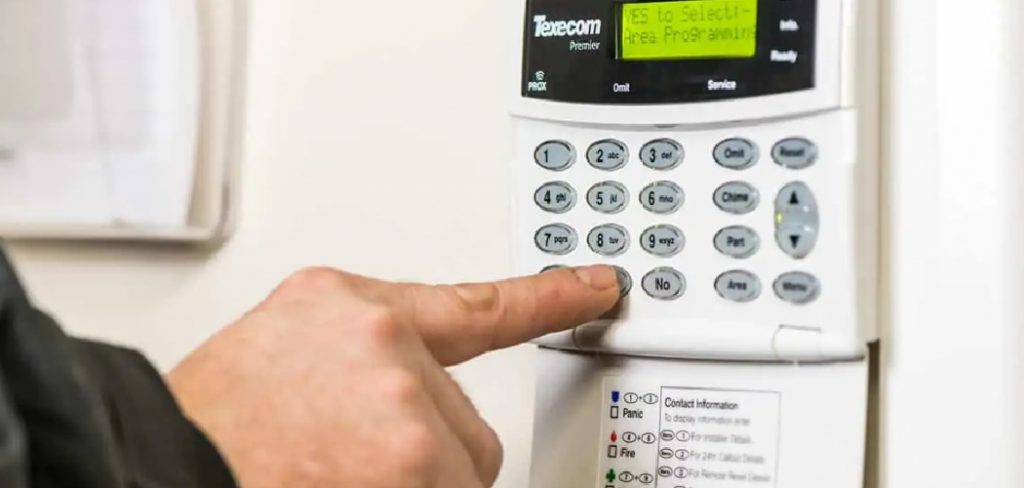
Knowing the proper procedure can resolve frustrating glitches and restore your system’s functionality without a costly service call. This guide is designed to walk you through the various methods and provide clear, step-by-step instructions on how to reset alarm keypad, ensuring your property remains secure.
Before proceeding with a reset, it’s essential to determine the type and model of your alarm keypad, as different systems may require specific steps. Refer to your user manual or check the manufacturer’s website for exact instructions tailored to your device. If your keypad is unresponsive or displaying an unusual error, start by performing a basic power cycle.
This involves disconnecting the power supply, including both the main power source and the backup battery, waiting for a few minutes, and then reconnecting them. After powering the system back on, enter your master code to reset any error messages. Be patient, as some systems may take a few moments to reboot fully.
Understanding the Alarm Keypad
The alarm keypad serves as the primary interface for your entire security system. It’s more than just a set of buttons; it’s the brain that communicates your commands to the central control panel. Its key functions include arming the system in “stay” or “away” modes, disarming it with a user code, and triggering a panic alarm in an emergency.
You might need to reset your keypad for several reasons: it could be frozen and unresponsive, you might have forgotten the master code, or it might be displaying a persistent error message after a power outage. A reset can clear these issues and return the keypad to a functional state.
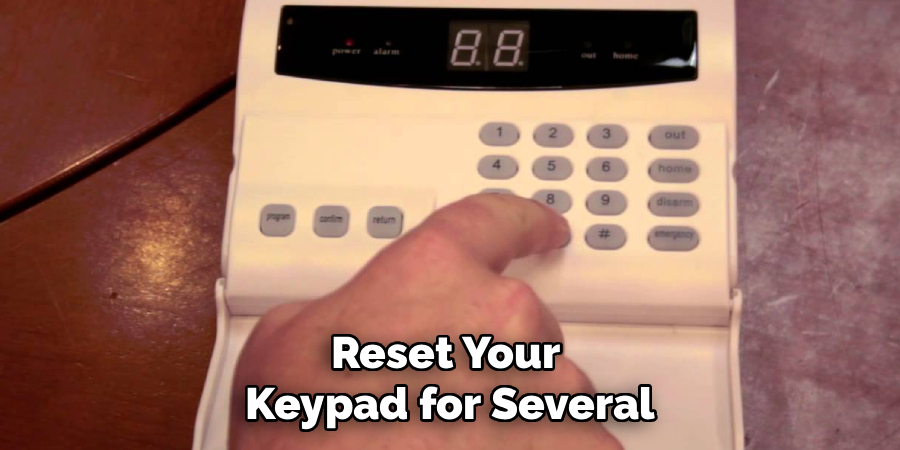
8 Methods on How to Reset Alarm Keypad
Method 1: Use the Default Master Code
If you’ve forgotten your master code but need to access the system’s programming to make changes, trying the default master code is the first step. Manufacturers ship alarm panels with a factory-default code. For many common systems, this code is “1234,” “1111,” or another simple combination.
You can find the specific default code for your model in the user manual or by searching online for your alarm system’s brand and model number. Entering this code can grant you access to the user menu, where you can then set a new master code without performing a full system reset.
Method 2: A Simple Way to Reset Alarm Keypad: The Power Cycle
Often, a simple “reboot” is all that’s needed to fix a keypad that is frozen or acting strangely. This process, known as a power cycle, clears the system’s temporary memory without erasing your codes or settings. To do this, you must disconnect all power.
First, find the alarm system’s main control panel (usually a metal box in a closet or basement) and unplug its AC power transformer from the wall outlet. Then, open the control panel and carefully disconnect one of the leads from the backup battery. Wait for about a minute, then reconnect the battery first, followed by the AC transformer.
Method 3: The Hard Reset Using the Control Panel
A hard reset, or factory reset, will wipe the system clean, returning it to its original out-of-the-box state. This is a drastic step, but it’s useful if you’ve lost the master code and the default code doesn’t work. To do this, power down the system completely (both AC and battery). Locate the two “reset” jumper pins on the main circuit board inside the control panel.
Use a small piece of wire or a jumper clip to connect these two pins. With the jumper in place, restore AC power to the system. After a few seconds, the system will reset. Power it down again, remove the jumper, and then restore power.
Method 4: Use a Key Combination on the Keypad
Some alarm systems have a specific key combination that can be used to initiate a reset or access programming. A common example for some panels is pressing the “*” and “#” keys simultaneously immediately after powering the system on.
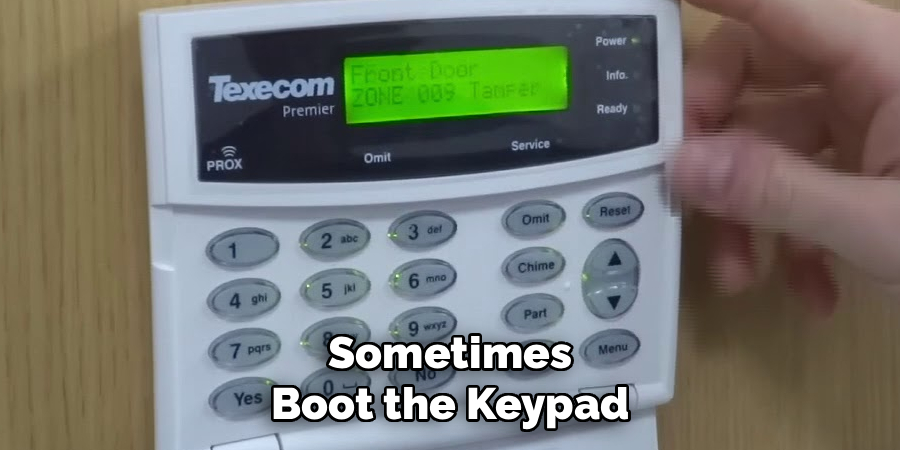
This can sometimes boot the keypad into a programming menu where you can perform a reset. This method is highly brand-specific, so it is essential to consult your user manual to see if your system has a special key command for this purpose. Attempting random combinations is not recommended as it could cause other issues.
Method 5: Resetting from the App or Web Portal
For modern smart alarm systems like those from Ring, SimpliSafe, or Abode, the reset process is often much simpler and can be done remotely. Log into your security system’s smartphone app or web portal.
Navigate to the device settings and find the specific keypad you want to reset. There is often an option in the menu to “reboot,” “restart,” or “remove” the device. A reboot will perform a soft reset. Removing and then re-adding the device to your system will perform a hard reset, restoring it to its factory settings.
Method 6: An Important Step on How to Reset Alarm Keypad: Disconnecting the Keypad
If a single keypad is malfunctioning but the rest of the system is fine, you can try resetting just that unit. This involves disconnecting it from the main control panel. Power down the entire system first (AC and battery).
Then, at the back of the keypad, disconnect the four wires that connect it to the main panel. Wait a minute, then carefully reconnect the wires, ensuring each color goes back to the correct terminal. Restore power to the system. This process forces the keypad to re-establish its connection with the control panel and can clear localized glitches.
Method 7: Clearing Codes and User Data
If your primary goal is to reset access codes because they have been forgotten or compromised, you don’t always need a full factory reset. Using the master code, you can enter the system’s programming menu.
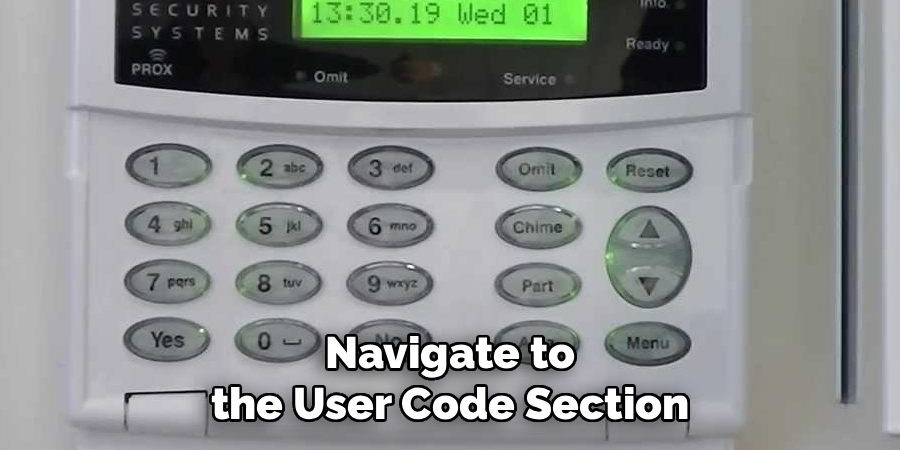
From there, you can navigate to the user code section and delete individual codes or, in some cases, clear all user codes at once. This leaves the master code intact but removes all other PINs, allowing you to start fresh and reprogram access for all users without erasing other system settings like sensor zones.
Method 8: The Installer Code Reset
Every alarm system has both a master code (for the user) and an installer code (for the technician). The installer code provides deeper access to system programming.
If you can find the default installer code for your system (often found in the installation manual), you can use it to enter the programming menu and change a forgotten master code. This is a powerful backdoor method that can help you regain control of your system. If the previous installer changed this code, however, this method will not work.
Frequently Asked Questions (FAQs)
Will Resetting My Alarm Keypad Erase All My Settings?
A soft reset, like a power cycle, will not erase your settings. However, a hard factory reset will wipe everything, including all user codes, sensor names, and custom system configurations. It returns the panel to its default state, so you will need to reprogram the entire system.
Can I Reset the Keypad if I’ve Forgotten the Master Code?
Yes, it is possible. Your best options are to try the factory default master code or to perform a full factory reset of the system. A factory reset will wipe the forgotten code, allowing you to set a new one, but it will also erase all other settings.
How Often Should I Reset My Alarm Keypad?
You should not reset your keypad as part of routine maintenance. A reset is a troubleshooting step that should only be performed when necessary—for example, if the keypad is frozen, you’re experiencing system errors, or you need to regain access after forgetting a master code.
What Should I Do If the Reset Button on My Keypad Doesn’t Work?
If a physical reset button is unresponsive, the issue might be with the keypad’s hardware. In this case, your best bet is to try a power cycle by disconnecting both the AC power and backup battery from the main control panel. If that doesn’t work, you may need to contact a professional for repair or replacement.
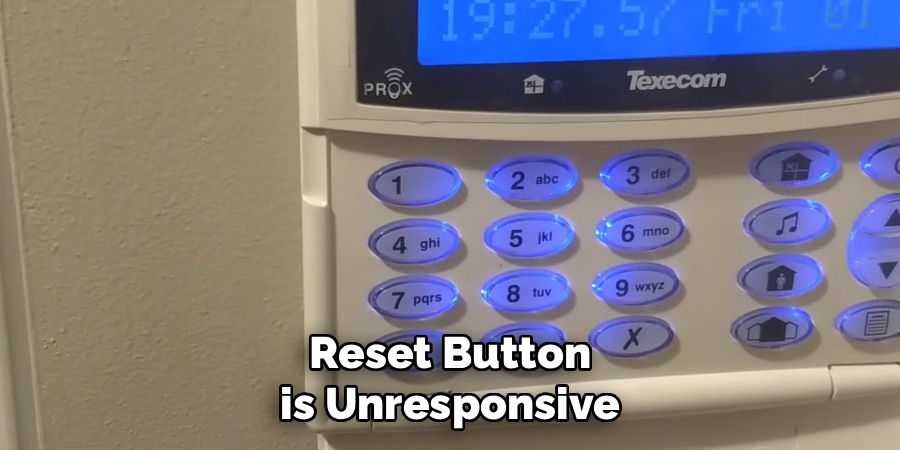
Will Resetting the Keypad Trigger the Alarm?
If you follow the proper procedure by disconnecting the power sources (AC and battery) before attempting a hard reset, it will not trigger the alarm. A simple power cycle might cause the siren to sound briefly when you restore power, but it can usually be silenced by entering a valid user code.
Conclusion
Knowing how to troubleshoot your alarm keypad is a valuable skill that can save you time and money. While a full factory reset is a powerful tool, it’s often a last resort. Simpler methods, like a power cycle, can frequently resolve common glitches without erasing your valuable settings.
By understanding the different approaches, from using default codes to performing a power cycle, you are well-equipped to handle most keypad issues. Always prioritize safety and consult your manual first. By learning how to reset alarm keypad, you ensure your security system remains a reliable and effective guardian of your property.
About
Safety Fic is a distinguished figure in the world of Diy design, with a decade of expertise creating innovative and sustainable Diy solutions. His professional focus lies in merging traditional craftsmanship with modern manufacturing techniques, fostering designs that are both practical and environmentally conscious. As the author of diy, Safety Fic delves into the art and science of Safety Fic-making, inspiring artisans and industry professionals alike.
Education RMIT University
(Melbourne, Australia) Associate Degree in Design (Safety Fic) Focus on sustainable design, industry-driven projects, and practical craftsmanship. Gained hands-on experience with traditional and digital manufacturing tools, such as CAD and CNC software.
Nottingham Trent University
(United Kingdom) Bachelor’s in diyfastly.com and Product Design (Honors) Specialized in product design with a focus on blending creativity with production techniques. Participated in industry projects, working with companies like John Lewis and Vitsoe to gain real-world insights.
Publications and Impact
In diy, Safety Fic his insights on indoor design processes, materials, and strategies for efficient production. His writing bridges the gap between artisan knowledge and modern industry needs, making it a must-read for both budding designers and seasoned professionals.
